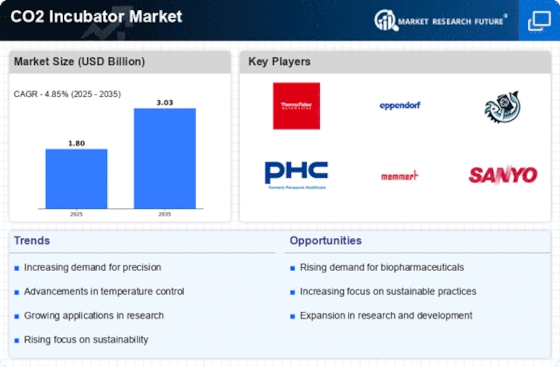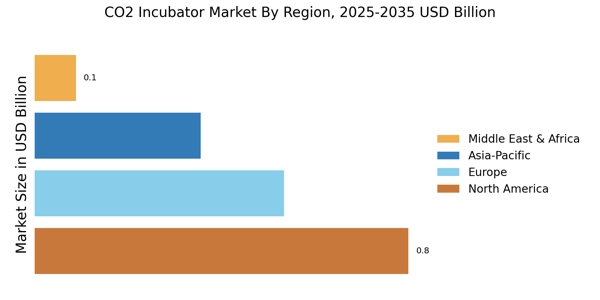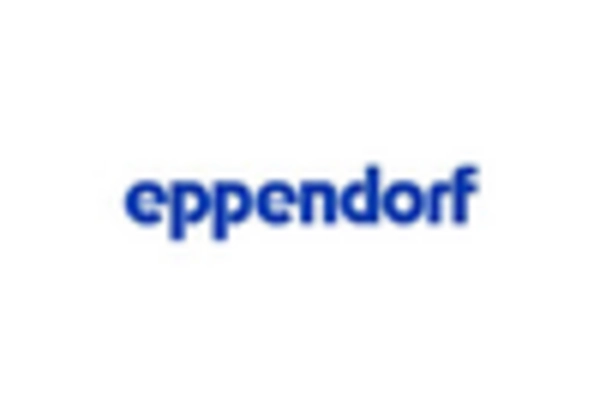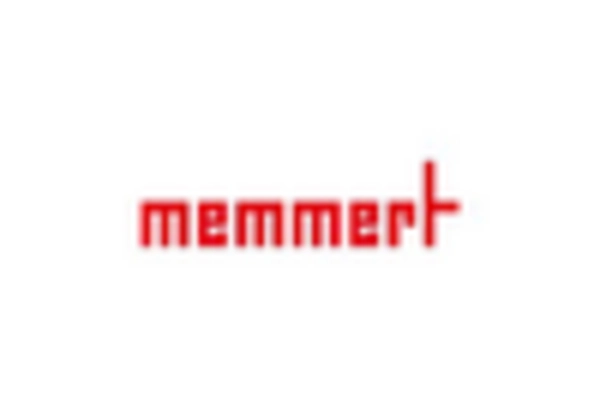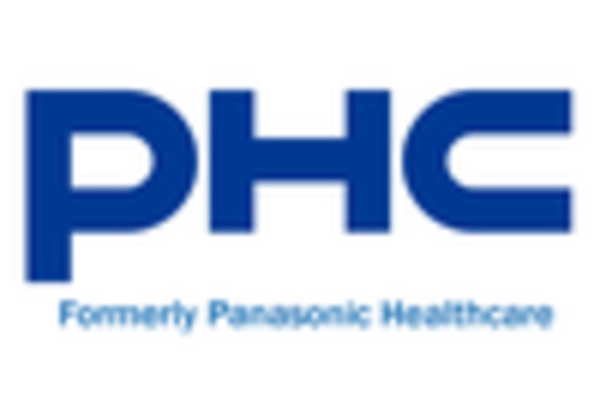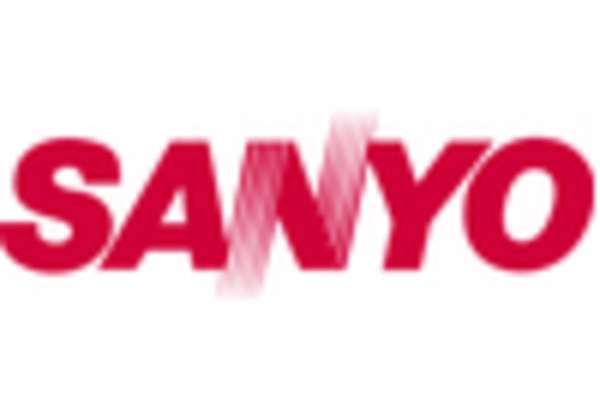Rising Demand for Biopharmaceuticals
The increasing demand for biopharmaceuticals is a key driver in the CO2 Incubator Market. As the biopharmaceutical sector expands, the need for controlled environments for cell culture and tissue engineering becomes paramount. CO2 incubators provide the necessary conditions for optimal cell growth, which is essential for the development of new therapies. According to recent data, the biopharmaceutical market is projected to reach USD 500 billion by 2025, indicating a robust growth trajectory. This surge in demand for biopharmaceuticals directly correlates with the rising need for CO2 incubators, as they are integral to research and production processes. Consequently, manufacturers in the CO2 Incubator Market are likely to innovate and enhance their product offerings to meet the evolving needs of this sector.
Growing Focus on Personalized Medicine
The growing emphasis on personalized medicine is emerging as a significant driver in the CO2 Incubator Market. As healthcare shifts towards tailored treatments, the need for precise and controlled environments for cell culture becomes increasingly critical. CO2 incubators play a vital role in supporting the development of personalized therapies by providing the necessary conditions for cell growth and experimentation. The personalized medicine market is anticipated to reach USD 2 trillion by 2030, reflecting a substantial growth potential. This trend suggests that the CO2 Incubator Market will likely experience heightened demand as researchers and healthcare providers seek advanced incubators to facilitate the development of customized treatment options.
Regulatory Compliance and Quality Standards
Regulatory compliance and adherence to quality standards are increasingly influencing the CO2 Incubator Market. As the demand for high-quality and reliable laboratory equipment rises, manufacturers must ensure that their products meet stringent regulatory requirements. This is particularly relevant in sectors such as pharmaceuticals and biotechnology, where compliance with Good Manufacturing Practices (GMP) is essential. The CO2 incubators that meet these standards are more likely to be favored by research institutions and laboratories. Consequently, the emphasis on regulatory compliance is expected to drive innovation and improvements in the design and functionality of CO2 incubators. This trend may lead to a more competitive landscape within the CO2 Incubator Market, as companies strive to differentiate their products based on quality and compliance.
Increased Research and Development Activities
The surge in research and development activities across various sectors, particularly in life sciences, is significantly influencing the CO2 Incubator Market. Institutions and laboratories are increasingly investing in R&D to foster innovation and develop new products. This trend is evident in the substantial funding allocated to research initiatives, which has seen a rise of approximately 10% annually in recent years. As a result, the demand for CO2 incubators, which are essential for maintaining optimal growth conditions for various cell types, is expected to grow. The CO2 Incubator Market is likely to benefit from this trend, as researchers require reliable and efficient incubators to support their experiments and studies, thereby driving market expansion.
Technological Innovations in Incubator Design
Technological innovations in incubator design are driving advancements in the CO2 Incubator Market. Manufacturers are increasingly integrating smart technologies, such as IoT connectivity and advanced monitoring systems, into their incubators. These innovations enhance the functionality and efficiency of CO2 incubators, allowing for real-time monitoring and control of environmental parameters. As a result, researchers can achieve more consistent and reliable results in their experiments. The market for smart incubators is projected to grow at a CAGR of 8% over the next five years, indicating a strong trend towards modernization in the CO2 Incubator Market. This shift towards technologically advanced incubators is likely to attract new customers and retain existing ones, thereby fostering market growth.
.png)

